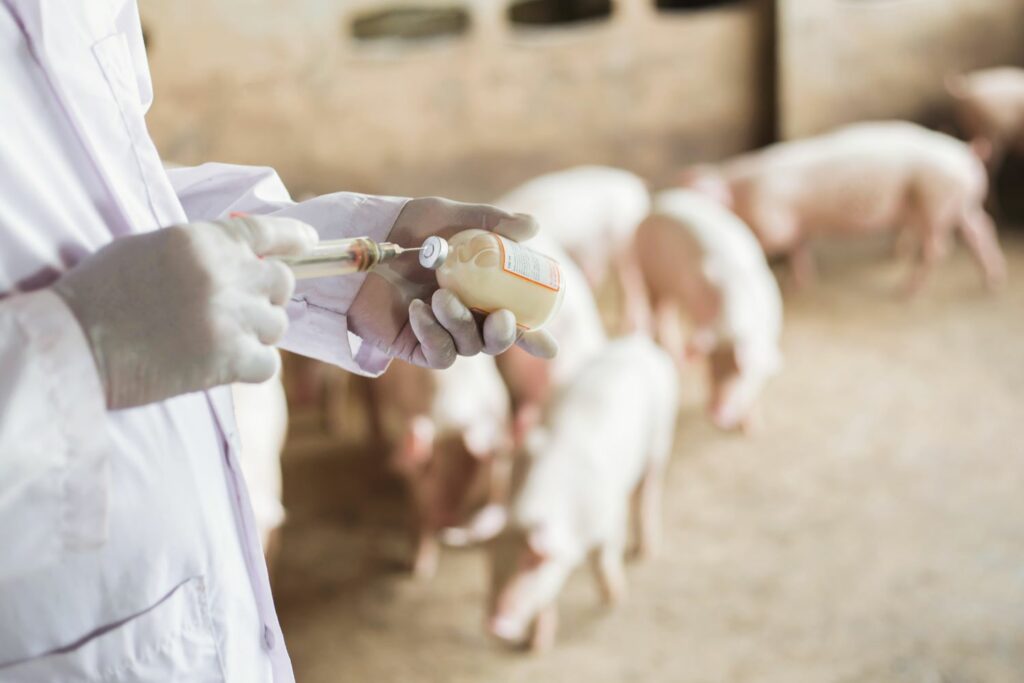UK AMR efforts praised with livestock antibiotic sales lowest on record
8th November 2022
The UK has received global praise for achieving significant reductions in antimicrobial resistance (AMR), with the government confirming livestock antibiotic sales are at the lowest level on record.

Stock photo for illustration purposes only.
The Veterinary Medicines Directorate (VMD) has confirmed a reduction of 55% in antibiotic sales for use in food-producing animals since 2014. According to its latest UK-Veterinary Antibiotic Resistance and Sales Surveillance (UK-VARSS) report, sales have dropped to 28.3mg/kg in 2021, representing the lowest figures to date.
Published today (8th November), the report shows the UK is continuing to demonstrate effective antibiotic stewardship in livestock and maintains some of the lowest levels of antibiotic use in Europe. Specifically, reductions in farm-level antibiotic use have been reported in the pig, chicken, duck and trout sectors.
Abigail Seager, chief executive of the Veterinary Medicines Directorate said: “I’m delighted with the continued progress in so many areas of this year’s UK-VARSS report. The overall decreasing trends in antimicrobial usage and resistance levels in livestock, shows the UK has continued in its mission to build on the antibiotic stewardship principles we have implemented in the past seven years.
“Our evolving surveillance programmes are essential to alert us to any emerging risks or unexpected changes. The UK’s collaborative and voluntary approach to reducing antimicrobial usage in farming is one we are very proud of.”
The World Health Organization considers resistance to antimicrobials to be one of the most serious threats to human and animal health today.
The UK’s chief veterinary officer, Christine Middlemiss, is positive the nation is on the way to overcoming the AMR crisis: “The UK as a whole is making sustained progress in reducing the unnecessary use of antibiotics through effective disease control measures, good farming practices and robust AMR surveillance.
“Tackling antimicrobial resistance requires a One Health approach and this record reduction shows how alongside vets, farmers and industry, we are demonstrating this year after year.”
In addition, sales of ‘last-resort’ antibiotics that are essential for treating human diseases have also declined in recent years due to efforts to reduce their use. Sales figures have seen a significant reduction of 83% since 2014, with these critically important drugs only making up 0.4% of total antibiotic sales.
Progress on antibiotic stewardship targets
Meanwhile, the latest Targets Task Force 2 (TTF2) report has also been published today by the Responsible Use of Medicines in Agriculture Alliance (RUMA). The report summarises progress made across the aquaculture, pig, poultry and ruminant sectors against antibiotic stewardship targets.
These targets have played a pivotal role in halving the sales of livestock antibiotics since 2014 and form a central part of government efforts to minimise AMR in the UK.
RUMA chair Cat McLaughlin commented: “We are two years into the RUMA 2021-2024 targets and many sectors are reporting positive progress, with all sectors continuing to strive to keep antibiotics effective and fit for purpose, and only using them when necessary.”
The current targets have been released as part of the scheme’s second round, building on the successful implementation of the first set of TTF targets announced back in 2017.
Ms McLaughlin highlighted that although the past two years haven’t been easy due to the various challenges UK farmers have faced, the industry has not wavered in its commitment when it comes to tackling AMR.
She also emphasised that the targets focus on the responsible use of antibiotics and not on zero use. “Some sectors, in response to specific disease outbreaks or other factors, have seen some increases in usage in order to effectively address these challenges and protect animal welfare. This reinforces the point that antibiotics are a vital tool to ensure healthy animals and high welfare standards.”
The efforts of the UK agriculture industry and its collaboration with the government to drive positive change in the fight against AMR has received international praise in a recent report, produced jointly by the Food and Agriculture Organization of the United Nations (FAO) and the UK’s VMD.
Commenting on the industry’s accomplishments, Ms McLaughlin added: “The successes to date across the industry has put the UK ahead of most food producing EU countries and the current RUMA targets up to 2024, further reinforce the ongoing commitment across all the sectors to achieve sustainable reductions.
“I continue to be impressed by the commitment of farmers, vets and everyone in the food supply chain, and am full of praise for the work of UK agriculture in its efforts to tackle AMR.”
The full RUMA TTF2 report, alongside previous reports, is available to view and download here.
